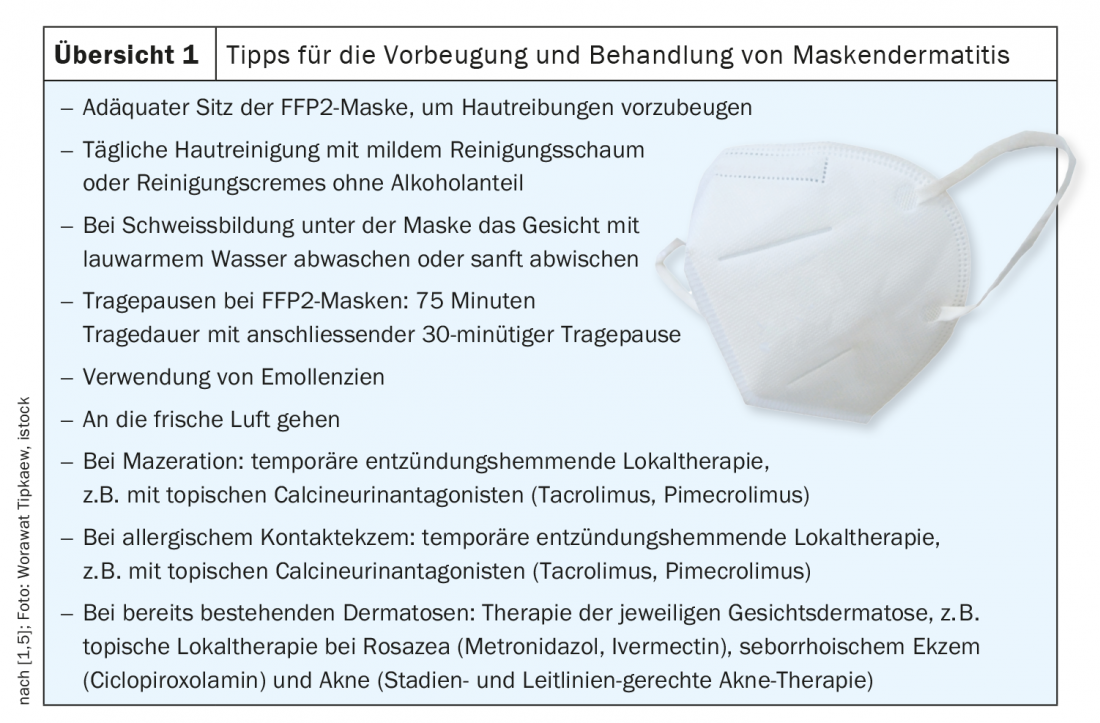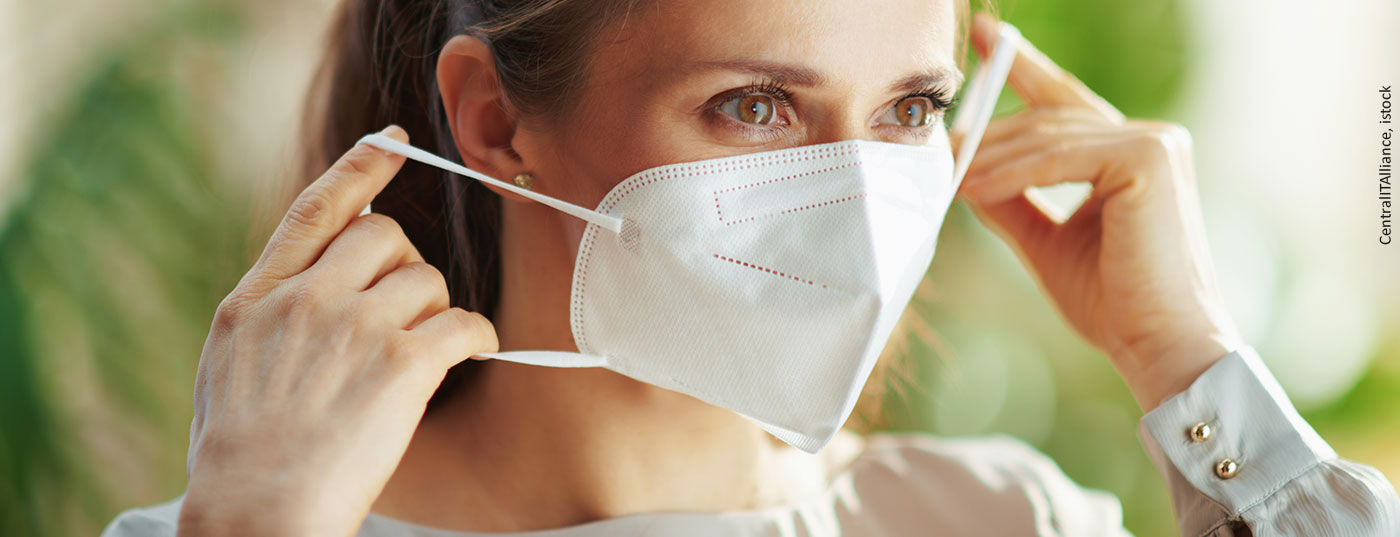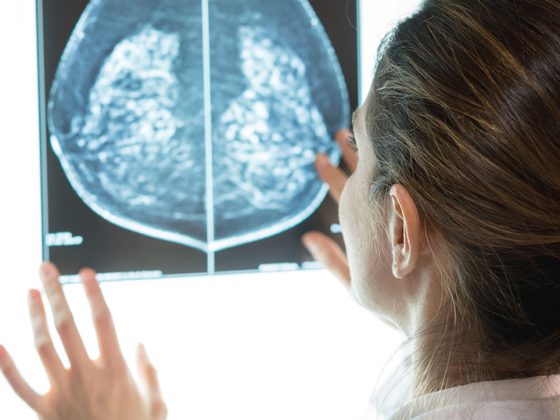During the corona pandemic, an increase in facial skin lesions was observed due to the wearing of a mouth-nose protection. Wearing an FFP2 protective mask will continue to be recommended in many places, especially in the medical field, to reduce the risk of infection with the coronavirus. For people who have to wear a mask permanently, experts from the DDG advise an individualized skin cleansing and skin care concept.
“For many people, the FFP2 mask will continue to be a daily companion, because the protection of vulnerable groups, for example in nursing homes or in clinics, comes first,” says Prof. Dr. med. Peter Elsner, Public Relations Officer of the German Dermatological Society (DDG) [1]. Empirical studies have shown that the intensive wearing of masks can cause skin changes that either occur for the first time or worsen pre-existing dermatoses in the facial region [2].
In a recent study published by the University of Osnabrück (D), about 80% of the nurses and physicians surveyed reported suffering from signs of mask dermatitis, and in an earlier study from China, about 97% of the clinical staff surveyed had developed mask-related skin symptoms on the bridge of the nose, cheeks, and forehead [3,4]. In particular, the risk seems to be increased when worn for more than 6 hours.
Occlusion effect of the mask affects skin environment
“We already had some knowledge before the corona pandemic about how the facial skin reacts to wearing a mask: it sometimes becomes irritated, reacts with inflammation or itching,” said Prof. Elsner [1]. Under the mask, the moisture content of the stratum corneum and the loss of water through the skin are increased. The skin barrier becomes compromised. Skin temperature, sebum production and the pH value increase. The skin environment is disturbed as a result of the occlusion effect of the mask. The mechanical friction on the facial skin worsens the skin’s appearance, especially in the case of already existing skin diseases such as acne or rosacea.
The question of how wearing an oral-nasal protection (MNS) affects the facial skin of nursing or therapeutic staff was the focus of an empirical study by a research team led by Prof. Dr. med. Christoph Skudlik of the Institute for Interdisciplinary Dermatological Prevention and Rehabilitation (iDerm) at the University of Osnabrück [3].

Study shows dramatic increase in facial skin lesions
192 health care workers participated in the written survey study conducted in November 2021. The average daily wearing time of an MNS summed to 0.6 ± 1.7 hours before the pandemic and 9.0 ± 1.9 hours during the pandemic. 10.9% of the 192 participants reported having suffered from facial skin lesions that were self-assessed to be due to wearing an MNS before the introduction of Covid-19-associated hygiene measures. For 80.7% of the 192 participants, these effects occurred only since the introduction of mandatory mask wearing. Wearing the FFP2 mask was cited as the most common trigger of the skin change. For the DDG experts Prof. Elsner and Prof. Skudlik, skin changes on the face caused by wearing a mask should be taken very seriously. “We advise informing employees about the prevention of skin lesions. Individualized skin cleansing and skin care concepts should be applied in occupational dermatology practice,” emphasizes Prof. Skudlik, who is also chairman of the Arbeitsgemeinschaft Berufs- und Umweltdermatologie der DDG [1]. Prof. Elsner adds: “We are aware that some people are concerned about their facial skin. However, with appropriate prophylaxis and treatment, it is very rarely necessary to stop wearing masks altogether” [1].
Congress: German Dermatological Society
Literature:
- “Corona protection vs. skin health: what protects against mask dermatitis and what helps against it,” Deutsche Dermatologische Gesellschaft e. V. (DDG), March 28, 2022.
- German Social Accident Insurance (DGUV), https://forum.dguv.de/ausgabe/5-2021/artikel/schutzmasken-und-hautbeschwerden-ein-haeufiges-berufsdermatologisches-problem-waehrend-der-pandemie, (last accessed 04/14/2022).
- Symanzik C, et al: Skin changes due to wearing an oral-nasal protection among health care workers in the course of COVID-19 pandemic containment: an empirical study in a maximum care hospital in Lower Saxony. Dermatology in Occupation and Environment, Vol. 70, No. 1/2022, pp. 3-11.
- Lan J, et al: Skin damage among health care workers managing coronavirus disease-2019. In: J Am Acad Dermatol 2020; 82: 1215-1216.
- Kreft B: Prevention and therapy of dermatoses triggered by personal mouth and nose protection (medical mouth and nose protection, filtering half masks (FFP1/FFP2/FFP3). J Dtsch Dermatol Ges 2021; 19(7): 1121-1122.
DERMATOLOGY PRACTICE 2022; 32(2): 43











